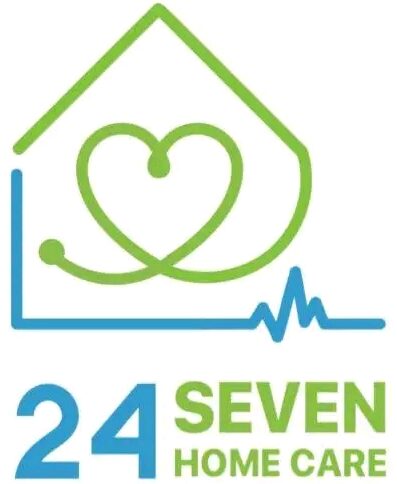
Dubai Home Healthcare: An All-Inclusive Guide to High-Quality Care:
In addition to being well-known for its magnificent skyscrapers and lavish way of life, Dubai is becoming more and more acknowledged for its top-notch medical facilities. In recent years, there has been a significant shift towards home healthcare in Dubai, offering patients a more personalized and convenient approach to medical care.This in-depth manual will delve into the realm of home care in Dubai, examining its advantages, offerings, legal environment, and prospects for healthcare provision in this fast-paced metropolis.
The 24 Seven Home Health Care Center takes pride in offering home healthcare, house calls, on-call doctors, and doctors at home in Dubai and Doctor at hotel in Dubai services. Our highly trained licensed medical professionals reach our patients’ locations anywhere and anytime in Dubai in 30 minutes 24 hours a day, 7 days a week and 365 days a year.
The Evolution of Home Care in Dubai, Dubai’s healthcare landscape has evolved dramatically over the past few decades.It no longer adopts a hospital-centric approach and instead adopts a patient-centric one with a significant emphasis on home treatment. This change is consistent with the global movement toward healthcare services that are easier to get and more patient-centered.
The 800 life response Home Health Care Center takes pride in offering home healthcare, house calls, on-call doctors, and doctors at home in Dubai and Doctor at hotel in Dubai services. Our highly trained licensed medical professionals reach our patients’ locations anywhere and anytime in Dubai in 30 minutes 24 hours a day, 7 days a week and 365 days a year.
The Driving Factors Behind the Growth of Home Care in Duba
- Population Aging: As Dubai’s population ages, there is a growing need for healthcare services. Senior citizens can receive medical treatment in the comfort of their own homes thanks to home healthcare.
- Management of Chronic Illnesses: Home healthcare services are an effective way to provide the ongoing monitoring and care that the growth in chronic illnesses demands.
- Technological Advancements: Due to Dubai’s dedication to innovation, home healthcare is now a practical and effective choice thanks to the integration of cutting-edge medical technologies.
The Benefits of Home Care in Dubai
Personalized Care
Patients in Dubai who receive home care benefit greatly from the individualized attention they receive. Individualized care plans guarantee that patients receive the appropriate care at the appropriate time.
Convenience and Comfort
Patients who receive care at home can save time and lessen stress by not having to go to medical facilities. It also enables patients to remain in familiar surroundings, contributing to their emotional well-being.
Reduced Healthcare Costs
Home healthcare can be more cost-effective than inpatient care, especially for chronic conditions that require ongoing treatment. Hospitalization costs, such as lodging and extra services, can be avoided by patients.
Faster Recovery
Research indicates that patients who get care in the convenience of their own homes typically recover more quickly. The absence of hospital-related stressors and the familiarity of home can contribute to a speedier recovery process.
Lower Risk of Infections
Hospitals can be breeding grounds for infections. By receiving care at home, patients reduce their exposure to potential pathogens, lowering the risk of healthcare-associated infections.
Services Offered in Home Healthcare
Dubai’s home healthcare services address a broad range of medical needs. These services are provided by a team of healthcare professionals, including nurses, physicians, therapists, and support staff.The following are a some of the services offered:
Nursing Care
A variety of services are offered by registered nurses, including as wound care, pharmaceutical administration, intravenous treatment, and vital sign monitoring.
Physical Therapy
Physical therapists use exercises and rehabilitation regimens to help patients regain strength, mobility, and independence.
Occupational Therapy
Occupational therapists help patients become more proficient in activities of daily living, with an emphasis on dressing, bathing, and cooking.
Medical Equipment and Supplies
In order to guarantee patients’ safety and comfort, home healthcare providers in Dubai frequently provide medical equipment including oxygen concentrators, ventilators, and mobility aids.
Palliative and Hospice Care
In the comfort of their own homes, patients with terminal diseases can receive compassionate end-of-life care and symptom control.
Chronic Disease Management
Home healthcare teams specialize in managing chronic conditions like diabetes, hypertension, and heart disease, ensuring patients receive consistent care and education.
Regulation and Accreditation
Dubai’s regulatory system for home healthcare services reflects the city’s dedication to providing high-quality healthcare. The Dubai Health Authority (DHA) and the Dubai Healthcare City Authority (DHCA) oversee the licensing and accreditation of healthcare facilities, including home healthcare agencies.
Home healthcare services in Dubai are required to adhere to strict regulatory criteria regarding personnel qualifications, safety procedures, and equipment upkeep in order to provide high-quality treatment. An additional degree of quality control is added by accreditation from respectable institutions such as the Joint Commission International (JCI).
Challenges and Future Trends
Although home healthcare in Dubai has many advantages, there are still certain obstacles to overcome and room for expansion:
Workforce Shortages
A larger and more skilled staff is required as the demand for home healthcare services rises. Dubai is making investments in healthcare education and training initiatives as a proactive measure to solve this..
Technological Integration
The integration of telehealth and wearable technology into home healthcare is expected to expand, enabling real-time monitoring and remote consultations with healthcare professionals.
Public Awareness
Increasing public awareness about the benefits of home healthcare and its availability is crucial for its continued growth in Dubai.
Partnerships and Collaborations
The quality and accessibility of home healthcare services may be further improved via partnerships between the public and commercial sectors and global healthcare organizations.
Certainly, let’s delve deeper into some of the key aspects of home healthcare in Dubai, including the regulatory framework, challenges, and future trends.
Regulatory Framework
Dubai’s commitment to healthcare quality and patient safety is exemplified through its rigorous regulatory framework for home healthcare providers. The main authorities in charge of regulating healthcare in Dubai are as follows:
Dubai Health Authority (DHA):
DHA is in charge of licensing and overseeing home healthcare professionals as well as healthcare institutions. They establish strict guidelines for the quality of care, staff qualifications, and equipment standards. It is essential to follow these rules in order to get and keep an operating license.
Dubai Healthcare City Authority (DHCA):
Regulating healthcare institutions in the free zone of Dubai Healthcare City (DHCC), a center of medical excellence in the area, is a major responsibility of DHCA. DHCC home health professionals are required to follow the rules and guidelines set out by DHCA.
Joint Commission International (JCI):
Many home healthcare providers in Dubai seek accreditation from JCI, a globally recognized healthcare accreditation organization.Attaining JCI certification is indicative of a dedication to global quality and patient safety standards.
Dubai Accreditation Center (DAC):
Healthcare providers are evaluated by DAC, an accrediting authority, on how well they comply to global standards. Their certification offers an additional degree of quality control.
Together, these regulating agencies strive to guarantee that Dubai’s home healthcare providers uphold the greatest levels of professionalism, safety, and care. Regular inspections, audits, and compliance checks are conducted to uphold these standards.
Workforce Shortages
The lack of trained healthcare workers is one of the issues affecting home healthcare in Dubai. More nurses, therapists, and support workers are required to meet the growing demand for home healthcare services. Dubai has been funding domestic and international healthcare education and training initiatives in order to solve this. Additionally, incentives are being provided to entice qualified medical experts to the area.is,
Technological Integration
Dubai is dedicated to innovation, and this is evident in the healthcare industry as well, where wearable technology and telemedicine are becoming increasingly important. Telehealth makes healthcare services more accessible, particularly for those living in distant places, by enabling patients to consult with medical specialists remotely. Real-time tracking of health indicators and vital signs is made possible by wearable technology, which includes smartwatches and health monitoring gadgets. These developments improve patient empowerment, facilitate early health issue diagnosis, and raise the standard of care.
Public Awareness
For home healthcare to continue expanding, more people need to be aware of its advantages. It’s possible that a large portion of the Dubai population is unaware of the benefits of getting treatment at home or the variety of services provided by home healthcare providers. Educational campaigns, community outreach, and collaboration with primary care physicians can help raise awareness and promote the benefits of home healthcare.
Partnerships and Collaborations
The quality and accessibility of home healthcare services in Dubai may be significantly improved via collaborations between the public and commercial sectors and global healthcare organizations. Collaborations can lead to the exchange of best practices, access to advanced medical technologies, and the development of specialized programs for specific medical conditions.
The Future of Home Healthcare in Dubai
There are a number of intriguing developments that bode well for home healthcare in Dubai in the future, including:
Personalized Care Plans
Healthcare practitioners will be able to construct extremely individualized treatment regimens for patients because to developments in artificial intelligence and data analytics. These plans will ensure that the care given is customized to meet the specific needs of each patient by taking into consideration their lifestyle, medical history, and genetic variables.
Enhanced Telehealth
It is anticipated that home healthcare services would include telehealth even more. Patients will have easy access to medical specialists thanks to video consultations, remote monitoring, and telemedicine platforms, which will cut down on the need for in-person appointments and lengthy wait periods.
IoT and Wearable Health Tech
The Internet of Things (IoT) and wearable health technology will continue to evolve, enabling continuous monitoring of vital signs and health parameters. This real-time data can be transmitted to healthcare providers, allowing for early intervention and proactive care.
Chronic Disease Management
The management of chronic illnesses will heavily rely on home healthcare given the increasing incidence of these conditions. Patients with conditions like diabetes, hypertension, and heart disease will benefit from continuous monitoring and timely interventions, helping to improve their quality of life.
In conclusion, home healthcare in Dubai is at the forefront of a healthcare revolution, offering personalized, convenient, and high-quality care to patients. The robust regulatory framework, ongoing investments in healthcare education and technology, and a commitment to public awareness are driving this transformation.Home healthcare will continue to be a vital component of Dubai’s healthcare system as it develops into a worldwide center for medical excellence, guaranteeing that patients receive the finest treatment possible in the convenience of their own homes.
Of course, let’s review the main ideas covered in the extended section:
Regulatory Framework
Dubai is committed to upholding the highest standards of patient safety and healthcare quality. To ensure this, there are several regulatory bodies overseeing healthcare services in the city:
Dubai Health Authority (DHA):
DHA is in charge of licensing and overseeing home healthcare professionals as well as healthcare institutions. They establish strict guidelines for the quality of care, the qualifications of healthcare staff, and equipment standards. To get and keep a license to run a healthcare center, you must follow these rules.
Dubai Healthcare City Authority (DHCA):
The Dubai Healthcare City (DHCC) free zone, a center of medical excellence in the area, is under the management of DHCA and has healthcare facilities. DHCC home health providers are required to follow DHCA rules and quality requirements.
Joint Commission International (JCI):
Many home healthcare providers in Dubai seek accreditation from JCI, a globally recognized healthcare accreditation organization. Attaining JCI certification is indicative of a dedication to global quality and patient safety standards. It’s an opportunity for medical professionals to demonstrate their commitment to providing top-notch treatment.
Dubai Accreditation Center (DAC):
An additional certification agency called DAC assesses healthcare providers according to how well they follow international standards. Earning accreditation from DAC adds an additional layer of quality assurance, ensuring that healthcare facilities maintain high standards of care.
The presence of these regulatory bodies, along with regular inspections, audits, and compliance checks, ensures that home healthcare providers in Dubai deliver care of the highest quality and adhere to safety and ethical standards.
Workforce Shortages:
With the increasing demand for home healthcare services, there’s a need for more qualified healthcare professionals like nurses, therapists, and support staff. Dubai is addressing this challenge by investing in healthcare education and training programs, both locally and internationally. In order to draw in qualified healthcare professionals to the area, they are also providing incentives.
Technological Integration:
Dubai has demonstrated its dedication to innovation by using wearables and telemedicine. With the use of telehealth, patients may consult with medical experts at a distance, improving access to care, particularly in rural regions. Real-time tracking of health indicators and vital signs is made possible by wearable technology, which includes smartwatches and health monitoring gadgets. These developments in technology improve the standard of treatment and provide individuals more autonomy over their health.
Public Awareness:
For home healthcare to continue expanding, more people need to be aware of its advantages. It’s possible that a large portion of Dubai’s population is unaware of all the options available or the benefits of getting treatment at home. Educational campaigns, community outreach, and collaboration with primary care physicians can help raise awareness and promote the benefits of home healthcare.
Partnerships and Collaborations:
Collaborations between public and private sectors, as well as international healthcare organizations, can further enhance the quality and reach of home healthcare services.These collaborations may result in the development of customized programs for certain medical diseases, information exchange, and access to cutting-edge medical technology.
The Future of Home Healthcare in Dubai
In the future, home healthcare in Dubai is anticipated to be shaped by a number of fascinating themes, including:
Personalized Care Plans:
Healthcare practitioners will be able to construct extremely individualized treatment regimens for patients because to developments in artificial intelligence and data analytics. These plans will take into account a person’s lifestyle, genetics, and medical history to make sure that the care is customized to meet each patient’s specific needs.
Enhanced Telehealth:
Telehealth will become even more integrated into home healthcare services. Video consultations, remote monitoring, and telemedicine platforms will provide patients with convenient access to healthcare professionals. This reduces the need for in-person visits and long wait times.
IoT and Wearable Health Tech:
The Internet of Things (IoT) and wearable health technology will continue to evolve, enabling continuous monitoring of vital signs and health parameters. This real-time data can be transmitted to healthcare providers, allowing for early intervention and proactive care.
Chronic Disease Management:
The management of chronic illnesses will heavily rely on home healthcare given the increasing incidence of these conditions. Patients’ quality of life would be enhanced by prompt treatments and ongoing monitoring for diseases including heart disease, diabetes, and hypertension.
In summary, Dubai is making significant strides in home healthcare, ensuring quality, accessibility, and patient-centric care.This change is being driven by the regulatory environment, investments in technology and education, and public awareness campaigns. Home healthcare, which offers patients top-notch treatment in the convenience of their own homes, will continue to be a crucial part of the healthcare system as Dubai develops as a worldwide center for healthcare.
With an emphasis on cost-effectiveness, convenience, and individualized care, home healthcare in Dubai is transforming the way healthcare is provided in this dynamic city and presents a strong alternative to conventional hospital-based treatment. Home healthcare is positioned to be crucial in ensuring that patients receive the superior treatment they need in the comfort of their own homes as Dubai’s healthcare system develops. In Dubai, home healthcare has a bright future ahead of it because of increased awareness, technology developments, and governmental backing.


